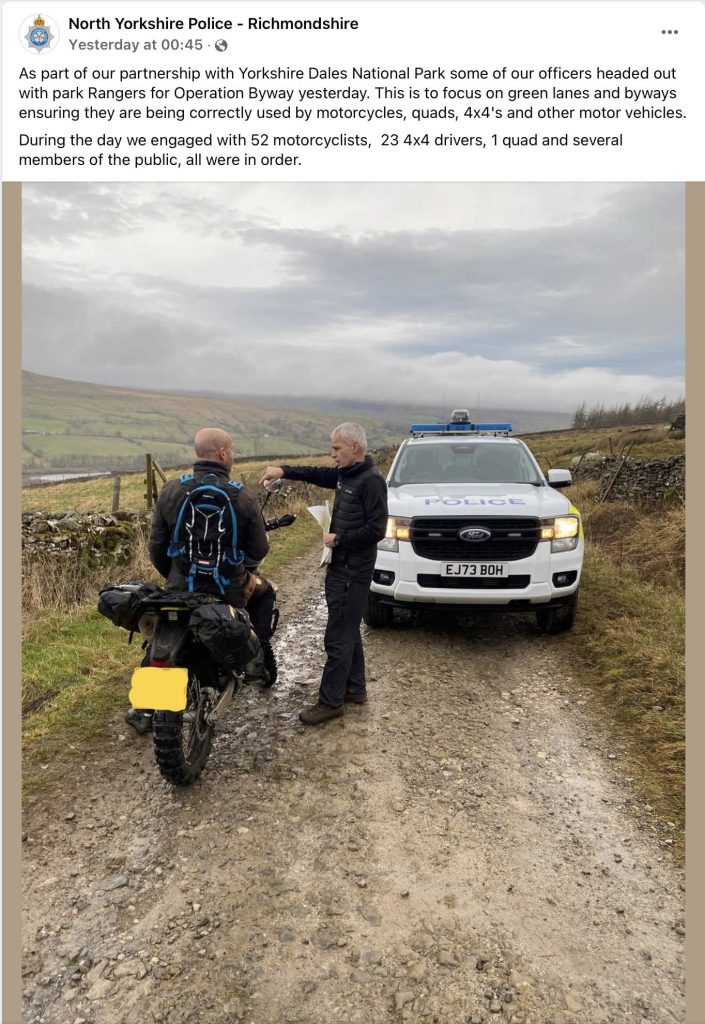In March 2023, Defra announced that it had reversed its earlier decision to repeal the rights of way ‘cut-off date’ legislation and that the cut-off date would be implemented, but deferred five years, from 2026 to 2031. Shortly afterwards, LARA prepared a Briefing Note with further background and more information on the implications for motoring interests.
We have just been informed that the cut-off date legislation is to be commenced as soon as possible and the legislation will come into effect on 25 October. On 26 October, a statutory instrument to extend the cut-off date to January 2031 will be laid in Parliament and will almost certainly come into effect on 17 November.
This legislation will extinguish any historical rights of way not recorded on the definitive map by the cut-off date. But this extinguishment will not take effect until the cut-off date. So there would still be scope to reverse the process up until that point were there to be a further change of policy under another government.
A major cause for concern is that the cut-off date legislation will be coming into effect ahead of the regulations intended to provide safeguards, in the form of exceptions to save from extinguishment certain specified rights of way that are not recorded by the cut-off date. Moreover, these exceptions will now not be as comprehensive as the rights of way Stakeholder Working Group had recommended and been led to expect.
We understand that the Secretary of State has agreed to exceptions relating to rights of way that are:
- subject to applications that are undetermined at the cut-off date.
- shown on the the List of Streets and/or National Street Gazetteer.
- situated in urban areas.
However, the Secretary of State has not yet agreed to the exceptions relating to:
- unrecorded and under-recorded widths.
- rights of way subject to definitive map orders delayed by court rulings.
And, the Secretary of State is opposed to the exception to save:
- unrecorded rights of way that are in regular use before the cut-off date, arguing that if these rights of way are to be saved, it should be by making applications, just as with other rights of way.
These developments will have much greater impact on other user groups than on motorists, but will be of concern to anyone who makes use of rights of way. The only direct threat to motoring interests is the exception for unrecorded and under-recorded widths, which could affect accessibility of some BOATs.
Defra will not at this stage be commencing either paragraph 4 of Schedule 5 to the Countryside & Rights of Way Act 2000, which provides that BOATs cannot be added to the definitive map, or the supplementary cut-off date provisions in Deregulation Act 2015 (sections 20 to 22), which will all be commenced in due course.

